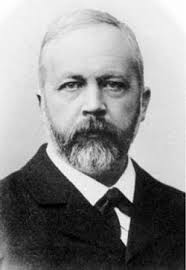He claims the ticket should therefore be invalidated and any penalties and fines canceled.
 Cambridge, MA, February 16 – Gordon L. Meriwether, a professor of Semitic languages at Harvard Divinity School, is contesting the origin of a speeding ticket issued to him last Wednesday, claiming that inconsistencies in the document’s format and content make it unlikely that the state of Massachusetts can correctly be credited with its creation.
Cambridge, MA, February 16 – Gordon L. Meriwether, a professor of Semitic languages at Harvard Divinity School, is contesting the origin of a speeding ticket issued to him last Wednesday, claiming that inconsistencies in the document’s format and content make it unlikely that the state of Massachusetts can correctly be credited with its creation.
The document, issued in the afternoon of January 22, was given to Professor Meriwether by State Trooper Arthur Dewitt about 40 miles west of Boston. According to the document, the 2008 BMW driven by Meriwether was traveling 75 MPH in a zone marked with a 50 MPH limit. The ticket carries a $250 fine, and the law mandates two points on the violator’s license.
Meriwether, however, claims that the long-held assumption behind the ticket’s authorship does not stand up to close scrutiny. “The style of expression in the top half of the ticket is terse, minimalist and monochromatic,” he explained at length to anyone who might listen. “Whereas the lower half consists of sections with actual verbal style and syntax – clearly not the work of the same person – or, I should say, persons, because within that very lower section there are glaring stylistic and design differences between the right and left portions of the document. Just look at the check-box format in the left section, versus the red-typeface instruction/warning box on the right. Why would a single author make such an unnecessary change? The only reasonable conclusion is that this ticket was redacted from multiple sources over time.” Therefore, he claims, the ticket should be invalidated and any penalties and fines canceled.
“Furthermore,” continued Meriwether, “the left-hand margin explicitly notes that this is but one copy of several, and everyone knows the pitfalls of multiple copies in trying to establish the authentic original text, let alone accurately assessing its true authorship.”
It is unclear whether the Massachusetts Traffic Court, which is scheduled to hear Meriwether’s defense at 9:40 this morning, will accept his defense. “It could go either way, I think,” said Linda Katz, a Yale University professor of Latin and Greek who has been following the case. “Academics have little problem accepting the idea that documents long assumed to be the work of an individual were actually woven together from disparate pieces – the book of Isaiah, for example. But who will the judge be in this case? Massachusetts has no shortage of Traffic Court judges who fancy themselves qualified for more intellectually weighty judicial positions, and who might even know a thing or two about Biblical scholarship – but the professor here might just as easily find himself opposite a seat-of-the-pants judge who doesn’t buy anything the common man can’t understand easily.”
This is not the first time the Semitic Languages professor has tried to employ the tools of his scholarship to areas other than ancient Near-Eastern text. When visiting the optometrist in 2004, Meriwether asked her whether she was aware that the different sizes of letters on each line of her eye chart, and its completely nonsensical content, were an excellent example of Lectio difficilior potior – all things being equal, the more difficult reading is preferred, and thus her chart was likely as close to its original version as could be hoped.
At press time, Meriwether was rehearsing his defense for a bewildered audience of eight fellow defendants.
Please support our work through Patreon.
Buy In The Biblical Sense: https://www.amazon.com/dp/B0B92QYWSL




